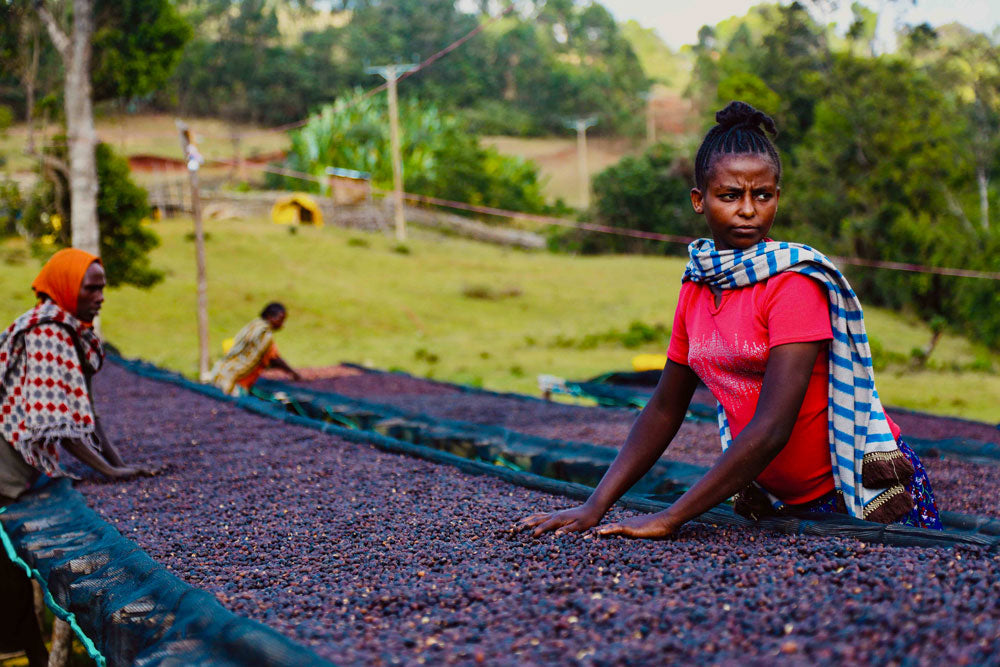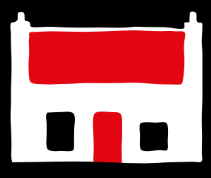Speciality coffee has historically been male-dominated, particularly in green trading and roasting. This has changed, with trailblazing women shaping the industry and many more female-founded business in the coffee space.
Scottish coffee scene
Look at Eve’s experience, here in Scotland, where women have been instrumental in shaping the speciality coffee scene. Dear Green, Glen Lyon and Modern Standards are just a few of the female-founded roasteries and were a big inspiration when Eve set up Argyll Coffee Roasters. Closer to home in Argyll we have Bute Coffee Company and Mull Coffee Roasters, and Down River in Port Glasgow, all female-founded.
Coffee production
In terms of coffee production through, the statistics are pretty stark. We know that women in coffee growing countries are disproportionately impacted by gender inequality. Women make up around 70% of the workforce involved in coffee production, yet less than 30% are in ownership or management positions. They are picking, sorting and labouring, not grading, marketing and selling, where there is higher earning potential. This part of the supply chain is dominated by men.
But things are changing, right across the industry. And we want to be part of that change.
By actively seeking to buy and showcase coffees sourced from women producers, we can directly support them economically and contribute to a more equitable coffee industry. We also know that women’s economic empowerment has a ripple effect that goes out into the community and generates opportunities for future generations of women in coffee, and beyond.
Honduras
When Eve and Michael visit Honduras earlier in the year, they were both blown away by the number of bad-ass women making waves in the coffee sector there - farm owners, green exporters, marketing pros, roasters, baristas. At every level they met women at the top of their game.
They both visited different parts of Honduras, but came back having had the same experience.
Michael was particularly inspired by Sara Victoria Vasquez, the owner of Finca Bella Vista. Sara is the third generation of her family to manage the farm, and she’s experienced first hand the often negative attitudes in Honduras toward female farmers. Although perceptions are slowly improving, society sees a single woman and assumes she can’t be as capable as her male counterparts. In reality, of course, nothing could be further from the truth, as Sara has taken this cultural obstacle and used it to create something beautiful.
She has chosen to employ almost exclusively women to carry out the notoriously hard work required to grow coffee. A team of 20-25 women can pick an entire lot of coffee in a day, bringing their kids to play whilst they work, in the knowledge that Sara has already started building a daycare centre on the farm.
This isn’t just a passive selection of workforce based on who’s available to work; it’s an active business decision. Sorting beans could be done automatically, increasing efficiency and ultimately reducing cost, but Sara wants to create jobs for women in the community, so she continues to employ a team of women to sort coffee beans manually, so they have a place to work. She’s created a thriving community of women on the farm, giving her employees an alternative to full time domestic duties and therefore a far greater independence than they might otherwise have.

Eve meanwhile was impressed with Proexo (pictured above) an organisation working with coffee producers in Copan. There were so many super talented women on the staff and they introduced her to the ‘Brisas’ women’s coffee brand they had developed aimed at showcasing coffee from female farmers and bringing it to the international speciality coffee market.
The first samples from some of these women growers should be with us at the end of the year, and we can’t wait to try them and then bring them to you guys.
Women's coffee available to buy now
In the meantime, check out these two coffees by female producers available on our website now. Two different continents, two different farms, two incredible coffees.
Ethiopian Aragash Gelcha
Aragash Gelcha’s farm is located in Halo Shashemene village, within Halo Bariti kebele, part of the Gedeb district in the Gedio zone, Eastern Southern Ethiopia. This region is known for producing some of the best coffees in Yirgacheffe. On her 5-hectare farm, Aragash (pictured below) grows coffee as a cash crop alongside false banana and fruit trees to feed her 12 children.
In 2018, Ethiopia’s coffee exporting rules were updated, allowing smallholders to directly export their own coffee. Though granted an export license, Aragash has faced many challenges over the last seven years in accessing stable and fair coffee markets due to a range of systemic and logistical barriers. Despite these difficulties, Aragash and her family continue to produce an average of 800kg of green coffee per hectare. During the off-season, the entire family works together to apply best agronomic practices, ensuring the health and sustainability of the farm.

Costa Rica Cafe Ceres Micromill
Ceres Micromill was established in 2019 by Stephanny Fernandez Elizondo (pictured below) and her mother, Alexandra, in Santa Maria de Dota in San José province. Along with quality, Stephanny and her mother’s work prioritizes sustainability in everything they do, and the micromill is currently working toward earning Bandera Azul ecological certification. This lot of catuai coffee underwent Red Honey processing at Cafe Ceres micromill. After harvest, coffee cherries were sorted via floatation to remove any underripe or overripe fruit. The cherries were placed into plastic bags and fermented for 72 hours prior to being pulped. The pulped coffee was then fermented in plastic bags for another 48 hours before being dried. The fermented coffee was dried on raised beds for 14 days while being moved every two hours to ensure uniform drying.



